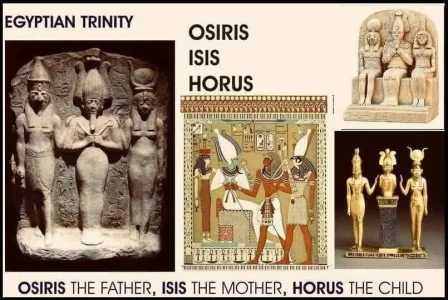Biblical Unitarian Beliefs (I know, I am one)
There is only one who is God. He is our Creator and the Father of all mankind (Malachi 2:10; Eph. 4:6). He himself declares: For I am God, and there is no one else; I am God, and there is no one like me. (Isa. 46:9) Jesus declares that his Father is the 'only true God' (John 17:3) and that the Father is both his God and the God of his disciples. (John 20:27)
Jesus is God's Son, born of a virgin, Jesus is the Christ, the only begotten Son of God (Matt. 16:16-18; 1 John 5:5) He is Lord it all who obey him (Luke 6:46; Heb. 5:9). He is the way to God. Jesus declares: I am the way, the truth and the life. No one comes to the Father except through me (John 14:6). God has made Jesus to be both Lord and Christ (Acts 2:36). By the power of God, he is not the head (Eph. 1:19-22)
The Holy Spirit is the spirit of God himself (Matt. 10:20). It is the Father in motion; touching and working in his creation. By it, God was/is the Father of Jesus (Matt. 1:18,20; Luke 1:35). By his spirit, God works in the lives of believers. Through it, we should strive to live like Christ and to mature as Christians. Paul writes:
I pray that, according to the riches of God’s glory, he may grant that you will be strengthened in your inner being with power through his spirit (Eph. 3:16).
Jesus died for our sins and was buried (1 Cor. 15:3, 4). But God raised him from the dead and set him at his own right hand as our leader and savior (Acts 5:30, 31). He will never die again (Rom. 6:10). For those who trust in Jesus, God has promised to also raise them from the dead and give them unending life (John 3:16). The Apostle Paul tells us:
God raised the Lord from the dead,
and he will also raise us by his power (1 Cor. 6:14).
Eternal life comes only through Jesus. As human beings, we are entirely mortal and subject to death. It is only through Christ that we can attain immortality – eternal life (Rom. 5:17 and 6:23). John writes:
Whoever has the Son has life; whoever does not
have the Son of God does not have life (1 John 5:12).
Our response to God through Jesus Christ is to repent (have a change of mind) and believe the gospel (Mark 1:15), confess our faith, be baptized in water by immersion in the name of Jesus and receive the spirit of God. The Apostle Peter said:
Repent, and be baptized every one of you
in the name of Jesus Christ for the forgiveness of your sins;
and you will receive the gift of the Holy Spirit (Acts 2:38).
Coming to be “in Christ” makes a person a participant in God’s new covenant (Heb. 13:20, 21). In this covenant, Jesus is our mediator with God (1 Tim. 2:5), our leader – our head (1 Cor. 11:3). In the new covenant, Jesus is our teacher and we will be judged by his words (John 12:48-50).
Now ---- where is ANY danger in that? At least we don't serve a three headed God. . . .
No. Just a forked tongue.
The first defense of the doctrine of the
Trinity was by Tertullian, who was born around AD 150-160, explicitly "defined" the
Trinity as Father, Son, and Holy Spirit and defended his theology against Praxeas.
Praxeas, if you do not know...Praxeas was a Christian theologian from Asia Minor in the late 2nd to early 3rd century, known for his belief in the unity of the Godhead and opposition to the division of the Father, Son, and Holy Spirit.
Believed in the three but as one in the Godhead. (NOT A 3 HEADED GOD)
YOU WANT EARLIER?
Polycarp ... a disciple of the apostle John.... So one would think he got some learning from one who was right there with Jesus
Polycarp, ( 69 - 155 AD) in his last prayer before martyrdom, acknowledged a tri-personal God, referring to the Father, His beloved Son Jesus Christ, and the Holy Spirit, indicating an early understanding of the Trinity.
His teachings reflect a belief in the distinct persons of the Godhead while affirming their unity as one God.
Ignatius of Antioch... you should bookmark this so you can reference it a lot.
Ignatius of Antioch is one of the earliest Church Fathers to reference the concept of the Trinity, although he did not use the term "Trinity" itself. He emphasized the distinct roles of the Father, Son, and Holy Spirit in his writings, indicating an early understanding of their relationship within the Godhead.
Ignatius of Antioch's Understanding of the Trinity
Early Context
Ignatius of Antioch, an early Church Father who lived around 35-107 AD, is one of the first known leaders to reference the Father, Son, and Holy Spirit in his writings. However, the term "Trinity" was not yet in use during his time. His thoughts on the Godhead reflect a developing understanding of the relationship between these three persons.
Key Beliefs
- Father, Son, and Holy Spirit: Ignatius emphasized the distinct roles of the Father, Son, and Holy Spirit. He referred to God primarily as the Father of Jesus Christ, indicating a close relationship between them.
- Divine Sonship: He acknowledged Jesus as "God" multiple times, affirming His divine nature and pre-existence. Ignatius stated that Jesus was "born of Mary" and conceived by the Holy Spirit, highlighting both His humanity and divinity.
- Unity and Distinction: While Ignatius recognized the distinct roles of each person in the Godhead, he did not articulate a systematic theology of the Trinity as later defined. His writings suggest a belief in their unity in purpose and essence, though he focused more on practical implications for faith and community.
Notable Quotes
- Ignatius described Christians as "stones of the Father’s temple," indicating a communal aspect of faith that involves the Father, Son, and Holy Spirit working together in believers' lives.
- He often used analogies to express the relationship among the three, such as comparing the Church to a temple built by the Father, with Christ as the cornerstone and the Holy Spirit as the guiding force.
Conclusion
Ignatius of Antioch laid foundational thoughts about the Trinity, emphasizing the importance of each person in the Godhead while contributing to the evolving understanding of this doctrine in early Christianity. His writings reflect a blend of reverence for the divine and practical guidance for the Christian community.
AND LET US NOT LEAVE OUT THEOPHILUS OF ANTIOCH
Theophilus of Antioch is another early Church Father who referenced the Trinity, using the term in his work "Ad Autolycum." Both Ignatius and Theophilus contributed to the early understanding of the relationship between the Father, Son, and Holy Spirit
Theophilus of Antioch
- Time Period: 169–181 AD
- Key Contributions: Theophilus is noted for being the first to use the actual word "Trinity" (Greek: Trias) in his work "Ad Autolycum." He referred to God, His Word, and His Wisdom, linking them to the creation narrative in Genesis.
Here is a small chart on the 3.
| Ignatius of Antioch | Early 2nd century | Mentioned Father, Son, and Holy Spirit in letters |
| Theophilus of Antioch | 169–181 AD | First to use the term "Trinity" in his writings |
| Polycarp of Smyrna | 70-155/160 AD | Prayed to the Father through Jesus, indicating a triadic view |



